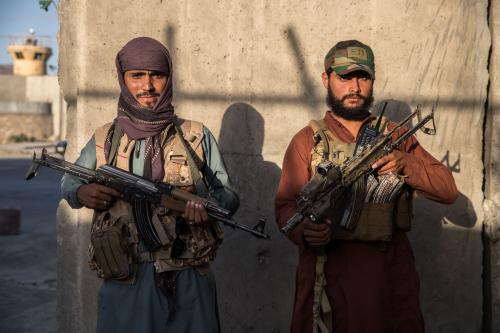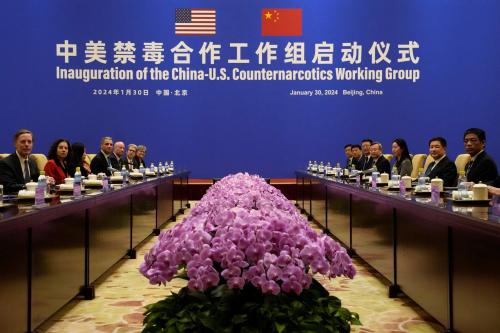In this essay, published in the Fall 2017 issue of Dædalus: “Civil Wars & Global Disorder: Threats & Opportunities,” Vanda Felbab-Brown analyzes the multiple threats that organized crime and illicit economies pose to states and the international order, with a particular focus on the security dimensions of the crime-conflict nexus. In discussing the range of responses by states and the international community to the nexus of criminal economies and civil wars, insurgencies, and terrorism, Dr. Felbab-Brown highlights how premature and ill-conceived government efforts to combat illicit economies have counterproductive effects, hampering efforts to suppress militancy and, in some cases, generating dangerous international spillovers of criminality.
This essay problematizes and revises the conventional wisdom regarding the relationships between conflicts and illicit economies and provides empirical evidence from Latin America, South and Southeast Asia, and Eastern Africa. It shows that what is internationally illegal may be seen as highly legitimate by local populations, and that the sponsors of the illegal can become potent power brokers and political actors. In analyzing the multiple threats that illegal economies and organized crime pose to the state and to international order, this essay also highlights that negative externalities and undesirable spillover effects can also be caused by government policies, not just the illicit markets and civil wars. Paradoxically, internal stability and even international order are not necessarily weakened by a state hosting an illicit economy; sometimes stability and order can be strengthened by the illicit economy.
The essay then examines various pathways out of the conflict-crime nexus, including defeating militants without suppressing illicit economies (as in the Peruvian military’s successful effort in defeating Shining Path); suppressing crime and illicit economies without ending conflict (as with international anti-piracy efforts in the Gulf of Aden and off Somalia); and state co-optation of illicit economies (a strategy central to the Burmese government’s ability to suppress military conflict). The essay concludes with policy recommendations, including correctly sequencing anti-crime and conflict mitigation efforts; recognizing the political dimensions of crime and illicit economies; reducing corruption; and improving governance. In concluding, Dr. Felbab-Brown maintains:
“How illicit economies are handled even outside of conflict settings will critically shape the viability of some states and the systems of rule. Thus, a failure to incorporate a sophisticated political analysis of illicit economies into decision-making will undermine the effectiveness of counterinsurgency, counterterrorism, and state-building efforts, and even international relations.”
The full essay can be found here.







Commentary
Organized crime, illicit economies, civil violence and international order: More complex than you think
October 2017